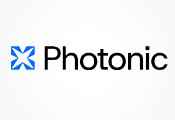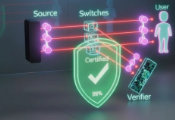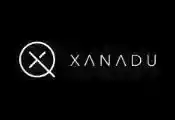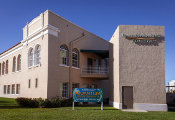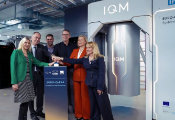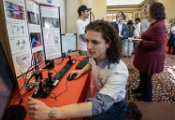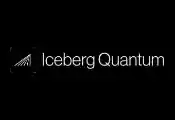Three New Partnerships Signed at FSQS 2025 to Strengthen France – Singapore Quantum Collaboration
Singapore, November 26, 2025 -- France and Singapore’s quantum ecosystems signed three new research agreements at the second French–Singaporean Quantum Symposium (FSQS 2025) in Paris, strengthening collaboration in quantum computing (hardware and algorithms), energy-efficient quantum technologies and quantum photonics.
Connections formed at the inaugural FSQS 2024 continued into 2025, contributing to some of the partnerships announced at this year’s symposium. FSQS 2025 convened leading researchers and industry partners to deepen bilateral research and move quantum discoveries closer to real-world applications.
The two-day symposium was jointly organised by Singapore’s National Quantum Office (NQO), a national platform hosted by the Agency for Science, Technology and Research (A*STAR), France’s Centre national de la recherche scientifique (CNRS) and Quantonation.
New Partnerships to Advance Quantum Technologies for Sustainability, Finance and Health
NQO, Singapore’s national platform for quantum Research, Innovation and Enterprise (RIE), brings together researchers, industry and end-users to support long-term collaboration and capability development under Singapore’s National Quantum Strategy. This collaborative environment underpins the three agreements formalised during the symposium, which strengthen cooperation in quantum technologies between research institutions and industry innovators from both countries.
- Expansion of the CNRS–NQO Memorandum of Understanding (MoU):
The MoU now covers quantum computing, in addition to earlier work in quantum photonics and quantum energetics. Scientists from both countries will work together to improve how quantum computers handle errors—a key step towards making these systems reliable and practical for real-world use cases such as drug discovery and financial modelling.
- Pasqal and NQO-led National-level Quantum Programmes (NQPs) Master Research Collaboration Agreement (MRCA):
The MRCA establishes a long-term framework to advance quantum research in neutral atom quantum processors. The research areas include improving the accuracy of quantum computation and the efficiency of quantum algorithms, as well as developing hardware components for the next-generation quantum computers. Together, these advances will make quantum processors more reliable, powerful, and scalable. As these processors improve and can run more capable algorithms, they could help tackle large-scale optimisation problems that today’s computers cannot handle — for example, improving logistics and resource planning, solving complex industrial processes, and simulating new materials.
This MRCA is established between Pasqal, a French quantum computing company backed by Quantonation and specialising in neutral-atom processors, and Singapore’s National-level Quantum Programmes (NQPs) led by NQO, including the National Quantum Processor Initiative (NQPI), National Quantum Computing Hub (NQCH), and National Quantum Federated Foundry (NQFF).
- Quobly and NQFF Research Collaboration Agreement (RCA):
Quobly, a pioneering French quantum startup backed by Quantonation, is developing silicon spin-qubit technologies on industrial semiconductor platforms. The RCA with NQFF will focus on testing and characterising qubit chips, improving Quobly’s chip design to enhance their scalability and efficiency, an essential step towards building next-generation quantum devices that could support early-stage experiments in pharmaceutical research, financial modelling and artificial intelligence.
The engagement initiated at FSQS 2024 led to Quobly establishing its first presence outside France in Singapore. The RCA signed with NQFF at FSQS 2025 takes this forward, in coordination with NQO and the broader Singapore quantum ecosystem. This advances collaborative development of critical components aimed at realising practical quantum computers, as Quobly continues to expand its activities locally.
Fostering Dialogue Among Global Quantum Leaders
The symposium featured scientific and industry exchanges that highlighted the strength of France–Singapore collaboration in quantum technologies. A highlight was the dialogue between pioneers in quantum Prof. Alain Aspect, 2022 Nobel Laureate in Physics, and Prof. Artur Ekert, Founding Director and Distinguished Fellow of Singapore’s Centre for Quantum Technologies (CQT), on how foundational research continues to drive advances in computing, communication and sensing. These discussions showcased how joint research is translating scientific discovery into technologies with practical and commercial impact, while underlying the importance of keeping strong basic research in quantum science including quantum foundations.
Continuing a Shared Vision for Quantum Cooperation
FSQS 2025 also outlined new directions for joint research and industry collaboration in quantum technologies. These will guide upcoming projects that connect researchers, companies and end-users to accelerate the translation of quantum research into practical applications. The next edition, FSQS 2026, will be held in Singapore, continuing efforts to strengthen bilateral cooperation, while underlying the importance of keeping strong basic research in quantum science including quantum foundations.

